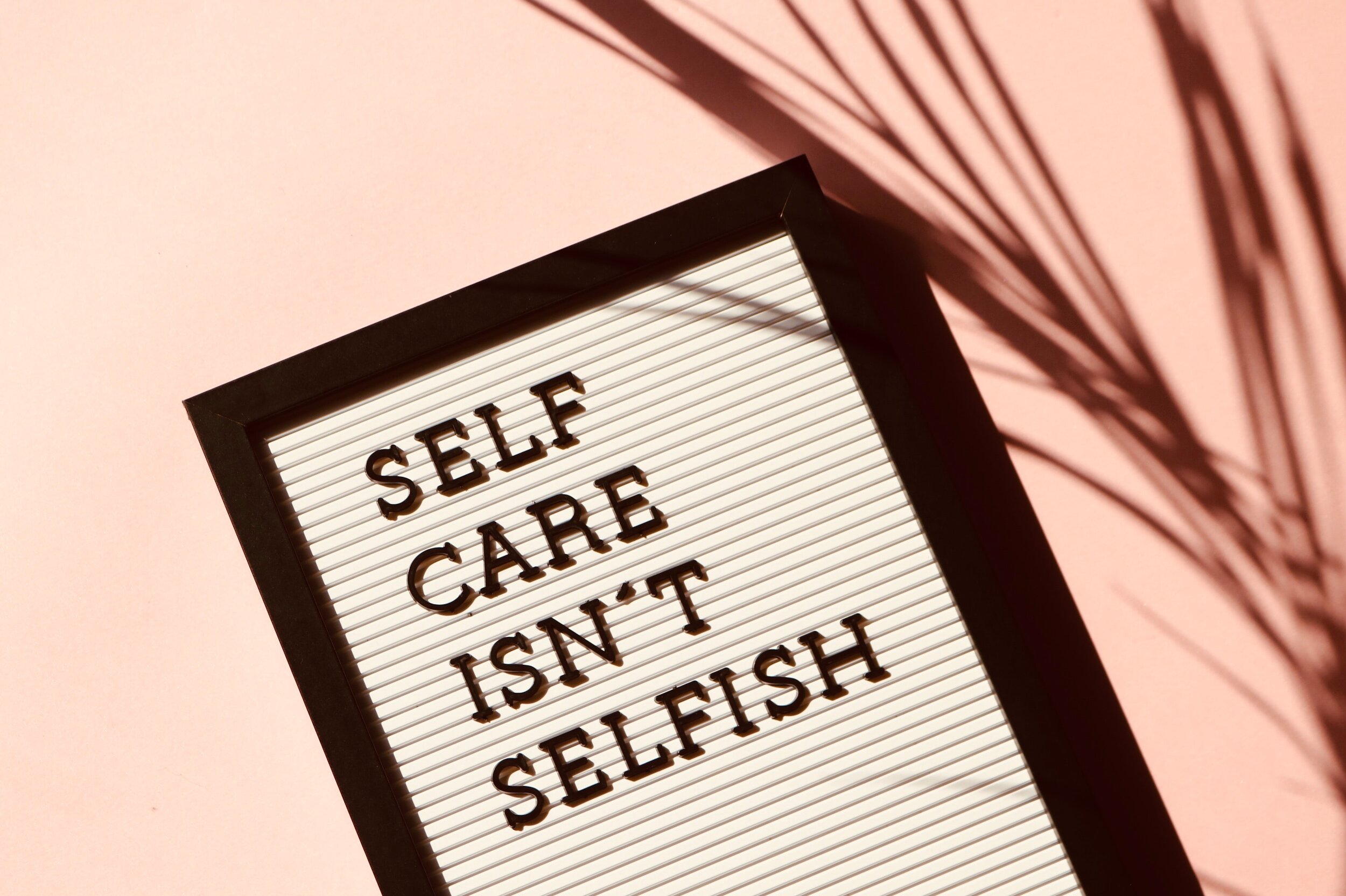The COVID-19 Pandemic has hit hard and now you’re trying to figure out how to stay home, homeschool kids, work from home, figure out getting groceries without being exposed, cook more meals…and that doesn’t even cover the emotional turmoil created daily by the rising diagnosis/death tolls and constant news coverage. All of these changes are occurring at the same time and it’s natural for your brain to feel overwhelmed, confused, and forgetful.
You may be focused primarily on taking care of others in your life, however, self care is very important right now to help your brain find the balance it needs to develop it’s new routine and rhythm. Self care is not selfish. In fact, one of the most helpful and loving things you can do to make yourself healthy and available to help those you love is to incorporate some self care into your daily life. Constant stress increases your Cortisol levels, contributes to lower immune system, and puts you at higher risk for unhealth. Taking as little as 10 minutes a day to do something calming and loving toward yourself can make a significant difference in your mental and physical health.
What Is Self Care?
Self care is any activity that creates a sense of calm, rest, relaxation and kindness toward yourself. The goal is to remember that while others are important, so are you. The purpose of self care is to get a physical and mental break from the constant busyness and stress associated with transition and crisis. There are many forms of self care that vary widely based on the personality and enjoyment of the individual. Some common examples are:
Getting enough sleep
Eating healthy foods
Exercise
Prayer/Meditation
Reading
Sports
Talking to a friend
Journaling
Creative writing
Playing video games
Taking a bath
Doing your nails
Being outdoors
Dancing
Singing
Jumping on the trampoline
Art
Cleaning
Swimming
Riding a bike
Baking
Decorating
Holding your pet
Deep breathing
Diffusing/applying essential oils
Organizing
The best way to make sure self care happens is to be realistic with your expectations, set aside specific time, and let your loved ones know you are taking your self care time and ask them to respect that time. It may also be helpful right now to create some boundaries around when work and school are happening daily so you can identify non-work time to schedule your self care activities.
As you consider your self care time, remember that others in your home need self care too. Consider asking them what they will do for self care and when they will set aside time so you can support their efforts to maintain their emotional health, too. Once you get a self care routine going during the pandemic, maybe you will find it easier to incorporate self care when the pandemic ends and you return to work, school, and other activities outside the home.
If you’re struggling with the pandemic or something else and are wanting to connect for online counseling, Journey Bravely is here to help you get started with online counseling this week. Call 918-221-9987 for your free 15 minute consultation call or if you’re ready to schedule your initial online counseling session, connect to our client portal to schedule now here.
Written By: Stephenie Craig, LCSW
Stephenie is a Licensed Clinical Social Worker with 18 years experience specializing in emotional/relational health counseling. Stephenie loves hearing others’ stories and helping people find new perspective that produces peace, healing, and connection through individual counseling. Stephenie provides treatment for adults, teenagers, couples, and families with anxiety symptoms, parenting struggles, teen issues, depression, grief, divorce, and other life transitions. Realizing your life is out of balance and ready to schedule your initial counseling session? Connect here for information about counseling Stephenie provides and get your initial therapy session scheduled.







